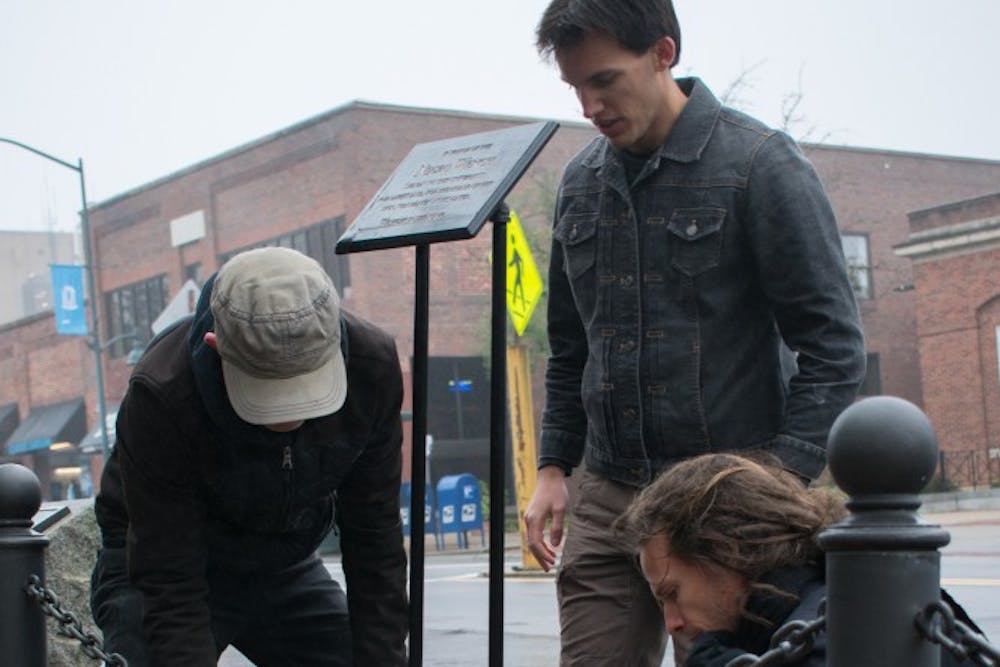The plaque commemorating the woman referenced in Julian Carr's 1913 Silent Sam dedication speech that was removed last Friday evening was put back in its original location on Franklin Street on Wednesday.
“When the opportunity rose for a few of community members to reinstall the monument, we leapt at the opportunity because we understand its importance and the broader importance of placing these monuments,” Calvin Deutschbein, a UNC graduate student and one of the original placers of the plaque, said in an email.
The Orange County 911 Communications Division received a call on Friday reporting the memorial plaque on Franklin Street was being removed after being installed earlier that same week.
“The caller gave a description of the vehicle that was in the process of removing that plaque, and that vehicle was stopped by an Orange County Sheriff’s deputy on Friday evening,” said Ran Northam, community safety communications specialist for the Town of Chapel Hill.
After the driver was stopped and questioned, the plaque was removed from the vehicle. It was returned to the Chapel Hill Police Department who began searching for the owner.
“As far as it being put back, we don't understand it to be that the plaque was put there in official capacity, so in that case, it would just need to be returned to the owner that we understand,” Northam said.
Once the plaque was in police possession, Northam said the Town could not reinstate the plaque since it was not originally erected in an official manner. Because the owner was unknown to the Town, the person who removed the plaque was not charged, according to Northam.
Deutschbein said he was upset but not surprised by the removal of the plaque.
“It was never the expectation that the struggle to upend systems of violence and oppression would be easy,” he said.




